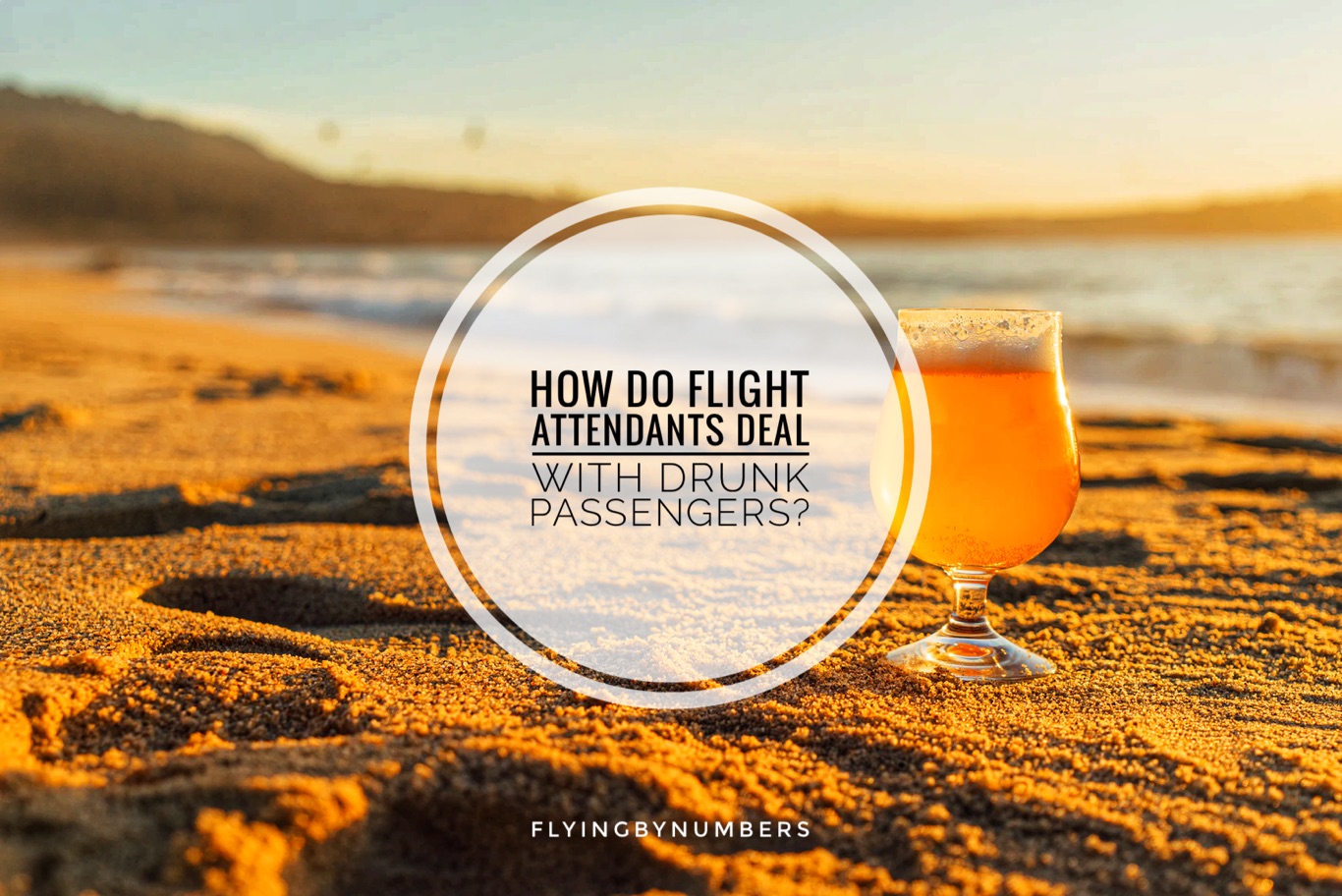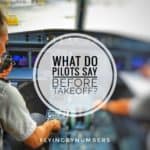Flying can be a stressful experience, what with the tight seating, limited legroom, and crying babies. That’s before we add alcohol into the mix!
So what happens if things take a turn for the worse and one of your fellow passengers becomes intoxicated? The solution usually comes down to the flight attendants’ judgement.
Drink-fueled air rage is becoming more commonplace
Robert Quigley — Senior VP for International SOS and MedAire
Cabin crew are trained to deal with all sorts of situations, and they frequently deal with drunk passengers. In this blog post, we will discuss what cabin crew should and should not do when confronted with an intoxicated passenger.
We will also look at 3 reasons why people often get so drunk on planes!
Is it illegal to be drunk on a plane? (UK)
Yes. Globally, aviation authorities are wary of the safety implication of drunk passengers on planes, and prohibiting it.
In the UK, this is regulated by the Air Navigation Order 2016, prohibiting drunkenness in any aircraft.
A person must not enter any aircraft when drunk, or be drunk in any aircraft.
The Air Navigation Order 2016, Article 242
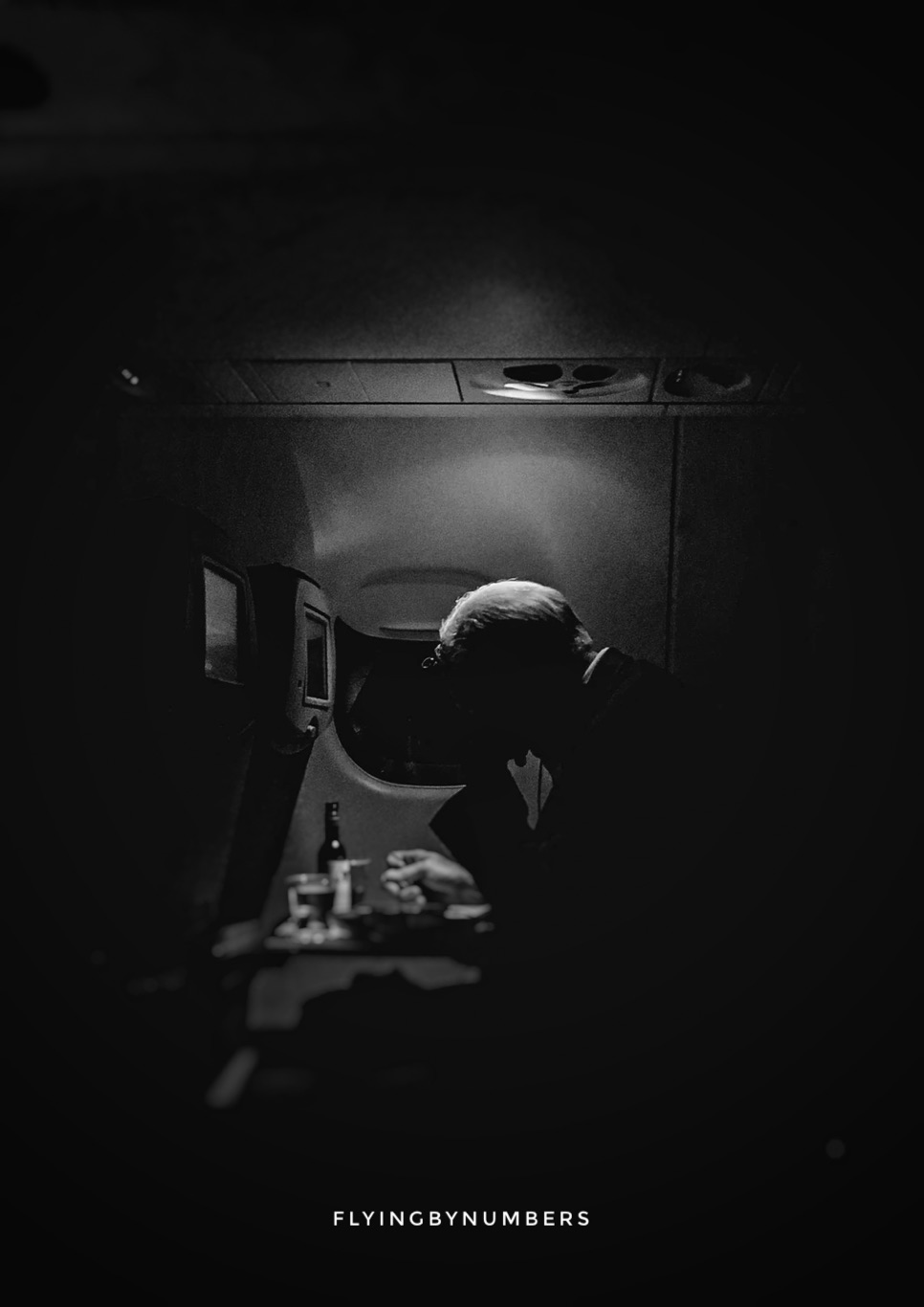
Is being drunk on a plane defined?
There is no fixed definition of drunkenness. Flight attendants don’t carry breathalysers for intoxicated passengers, and it’s quite normal for passengers to act slightly differently, or out of sorts while flying. Flying can be a stressful experience, and is out of many people’s comfort zone.
For this reason, cabin crew typically need to make a judgement on intoxicated passengers.
Dealing with drunk passengers — before they board the plane
From personal experience, the best place to deal with drunk passengers is before they board the plane!
This ensures that the safety of other passengers is not compromised, and that the situation does not get worse once the flight takes off.
There are a few things that cabin crew can do to deal with while boarding intoxicated passengers…
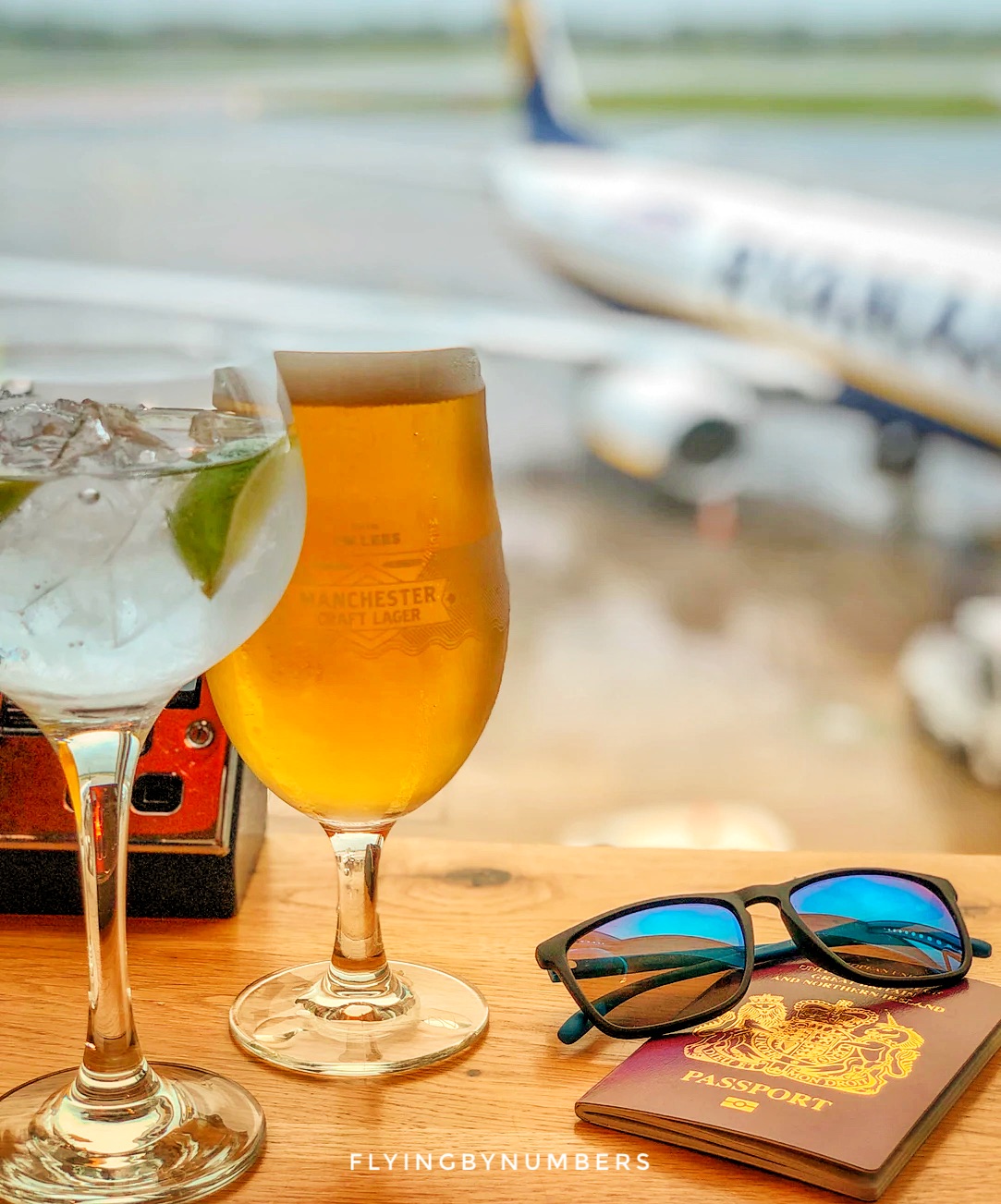
These steps are how great flight attendants build up a picture of passenger intoxication.
Remember: It is a judgement call to be made on the day — with input from the Senior Flight Attendant, and Captain if required. Most intoxicated passenger simply want to sleep, and removing a calm and well-mannered passengers simply because they are intoxicated is not something flight attendants set out to do.
If the passenger is unfit to fly, company policy dictates they will be asked to leave the plane, and rearrange for a later flight.
If the passenger refuses to leave, the airport police will normally get involved in escorting the passenger off the aircraft.
Dealing with drunk passengers — during the flight
If a passenger becomes intoxicated during the flight, cabin crew should take the following steps:
Dealing with drunk passengers — after landing
Once the flight has landed, 99% of the time passengers who have become intoxicated will have sobered up, and sheepishly leave the plane. Remember if you have confiscated any personal alcohol to return it to the passengers, and typically incident reports will need to be completed if any other passengers had to be moved, or alcohol stopped being served.
Very occasionally, intoxicated passengers will remain drunk, or events in the air will have progressed to a level where flight attendants feel further measures must be taken. In this case, the flight crew will be contacted, and they will arrange for the airport police to meet the aircraft on landing.
Passengers will be asked to remain seated once the aircraft parks at the gate. Police will board, remove the intoxicated passenger, and disembarkation can begin!
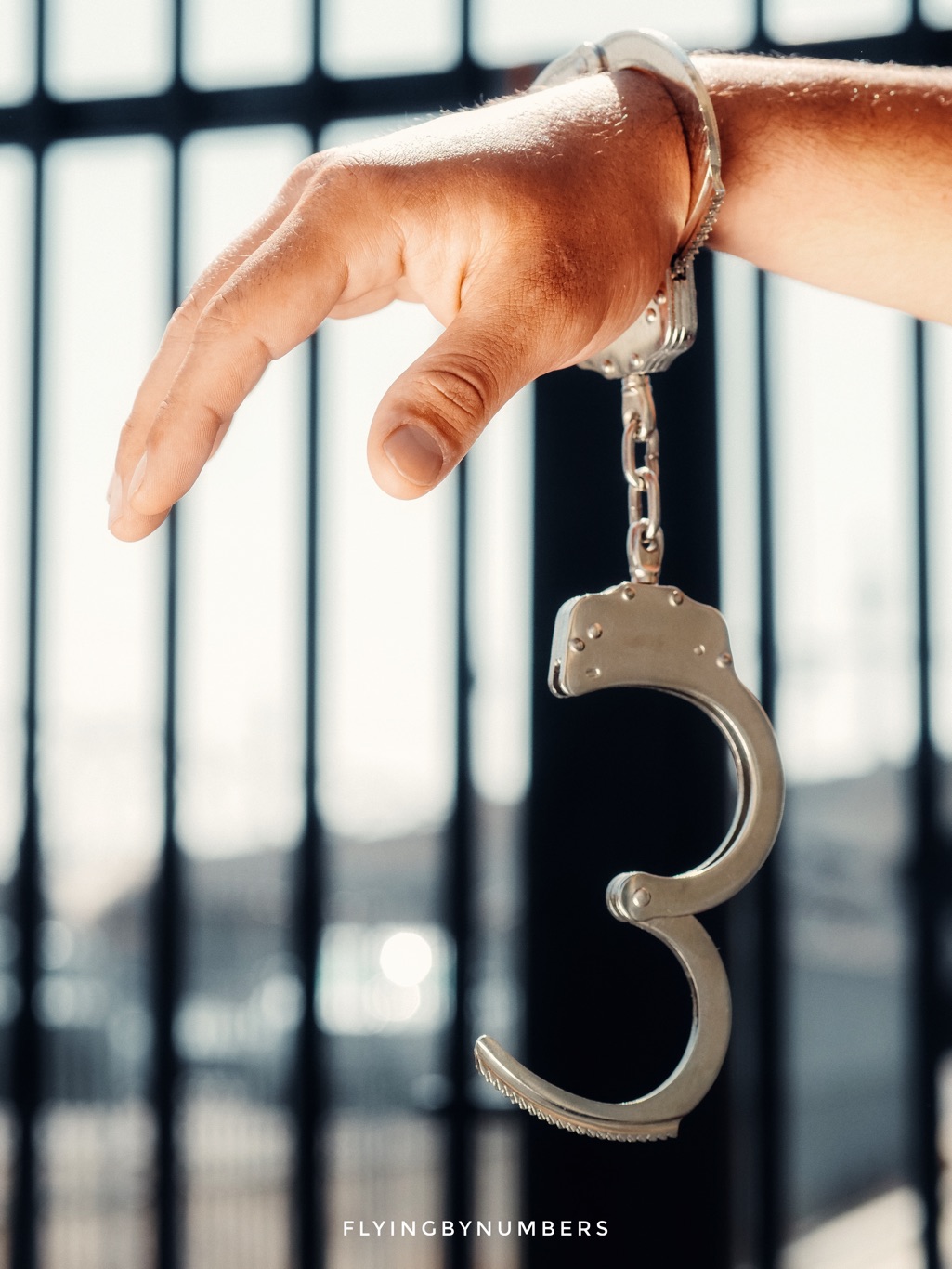
Three reasons passengers get too drunk on planes!
Flight attendants end up dealing with intoxicated passengers surprisingly regularly.
But why is it that people can get so drunk on a plane? In my years of experience as a flight attendant, there are 3 main reasons:
- Nervous flyers
- 24/7 bars
- Mixing drinks
1. Nervous flyers
A fear of flying a hugely common occurrence, with some estimating up to 40% of the population suffering it.
One way people combat this is to drink. Heavily!
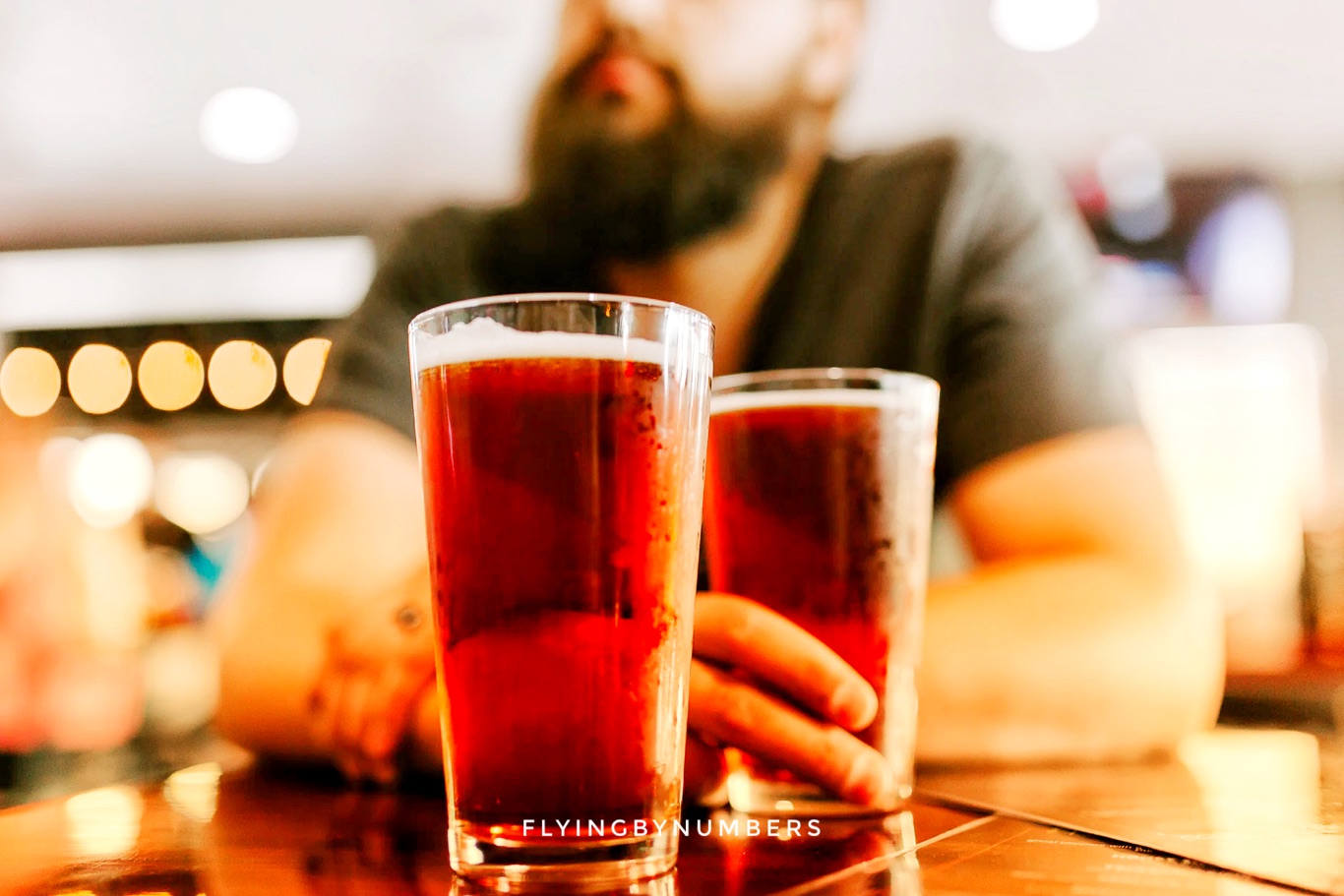
2. Airport bars
Well… It’s 5 o’clock somewhere in the world
Alan Jackson — and every drunk traveller at 9am!
Airport bars are exempt from certain licensing acts that prohibit things like excessive happy hour promotions and early morning drinking.
The UK government launched a review into this in 2018, but found not enough evidence to change the laws. So, for now, airport bars often remain a 24/7 drinking zone.
3. Mixed drinks
A beer in the airport bar, the pre-flight glass of champagne, now you’re debating a vodka and coke.
With jet lag, airport stress and multiple hours to wait, it can be difficult to keep track of what you’re drinking. And, of course, there’s the fact that aircraft miniatures are all double shots of alcohol.
Summary
It is illegally to be drunk on a plane, but how flight attendants deal with intoxicated passengers varies, and they have a lot of discretion.
Ordinarily, cabin crew will look to minimise the risk early, by talking to intoxicated passengers during boarding, refusing to serve alcohol, or even confiscating personal alcohol for the duration of the flight.
While small measures are often enough to stop drunkenness escalating into a potentially dangerous situation, this happens infrequently. Flight attendants are well-trained to deal with these drunk passengers, and there are numerous company-specific policies and procedures to follow — including being met by the police on arrival!
So, what can you do to avoid getting drunk on a plane? Well, the best thing is to drink in moderation and avoid drinking too many cocktails or mixed drinks. And if you do end up feeling a bit tipsy, try to drink plenty of water to avoid a bad hangover— planes are already dehydrating.
